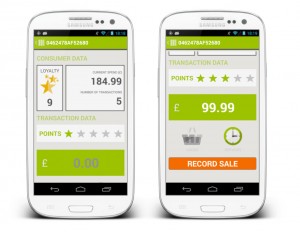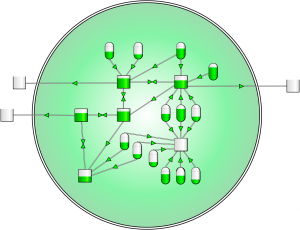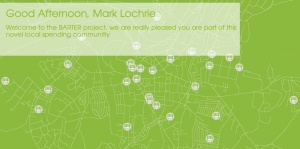It has been a while since the birth of ‘Local Trade, Local Wealth’ – an ambitious project funded by Catalyst to develop a mobile system to foster local spending and help the Lancaster economy flourish. The seed funding was put toward a proof of concept, resulting in a mobile interface for recording trading data. This led to the awarding of an EPSRC Research in the Wild grant, and 18 more months of development.
In the past several months, the proof of concept has been developed into a working system, which we now call BARTER: moBile sociAl netwoRking supporTing local Ethical tRading. Trading data can now be recorded by mobile (Android) phones and BARTER’s NFC (near frequency communications) cards. We have also devised a means of allowing users to link to the BARTER system via existing cards, such as their Lancaster University Purple Card, and we have plans to link all purple cards to BARTER in the future.
The other key development has been the BARTER website, the key purpose of which is to allow users to explore the trading data collected by the system. We are currently in the process of developing a visualisation that will not only educate the Lancaster community about the flow of money around (and out of) their economy, but will also motivate them to do more of their spending locally.
One proposed visualisation is shown below, although we plan to conduct interviews and focus groups to help us determine the best way to display this information.
We are nearly done developing another visualisation that maps the connections between various traders around Lancaster, which will look something like this:
You can access the latest information and videos for BARTER at barterproject.org
We have also had some success with publications. Our first publication, presented at Academic MindTrek ’13, is available for download here.
In a forthcoming IT Professional article – to appear in the special edition on mobile commerce – we describe the concept behind the BARTER system. And in a conference paper for CHI ’14, we discuss how BARTER relates to sustainability, and why solutions such as this would benefit the cause.
We have also had a paper accepted for the CSCW 2014 workshop on Co-creating & Identity-making in CSCW: revisiting ethics in design research which explores the ethics of persuasive technology.
For more information on BARTER, visit our webpage and our Facebook page. Further details on the BARTER concept and how the system works are presented in the videos found here and here.





